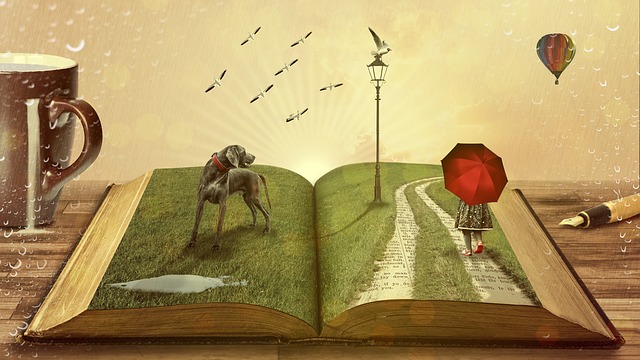Long, long ago, in a land far away… storytelling was a way to pass the time, entertain, and teach each other about the many facets of life. Ships on choppy waters, dragons lurking in sparkling caves, dark forests, punishing queens, hags and fairies and jealous nymphs.
Except that people still do, and in this land as well! The 19th Annual National Storytelling Week takes place this year from the 26th January – 2nd February 2019 and will be happening in theatres, schools, hospitals, care homes, and a whole spectrum of different venues across the country.
We have so many devices built specifically for instantaneous entertainment and educational purposes. We have videos and books and radio and TV and, of course, the internet for all of that. But storytelling is still an incredibly important practice that is just as valuable today as it was in history. Storytelling is the ultimate person-to-person interaction.
The storyteller
To be a good storyteller, you must stretch your imagination, stream your ideas together smoothly, and articulate them clearly and interestingly. You must be confident in speaking in front of people (whether that’s one or one hundred) and capable of holding your audience for at least the length of your tale.
The listener
As a listener, you are exposed to someone else’s ideas. You must practice attention. You must exercise patience and tolerance. But you also have the privilege of experiencing any number of emotive states – laughter, tears, empathy, anticipation, relief, satisfaction. Think back to the stories you may have been told as a child, and remember the excitement and the tragedy, the feeling of being led into a different world by someone else’s voice, even if only until the “ever after”.
The history of storytelling
Storytelling is an ancient practice. The earliest form of storytelling was discovered in the Lascaux Caves of Southern France. Cave paintings depict a number of animals and a human being, telling the story of hunting practices used 15,000 years ago. The first printed story was the epic of Gilgamesh. It was published nearly 3,000 years ago. Word-of-mouth spread this story from Mesopotamia to Asia.
In 200 B.C. the Aesop fables were printed for mass production. They were created in 500 B.C. How did the story survive so many years without being printed? Simple. The power of oral storytelling. A skill so powerful that the fables were remembered over generations.
Stories are such an integral part of our society. Texts like the Bible’s Old Testament and Shakespeare’s sonnets are still taught in schools across the country. Storytelling is still used by the great minds of today. Steve Jobs, for example, was admired for his use of narrative when presenting new products made by his company, Apple.
“Stories have to be told or they die, and when they die, we can’t remember who we are or why we’re here.” – Sue Monk Kidd
Get involved in Storytelling Week, and don’t stop there. Organise an event in your community just for fun, or even better, for charity. Tell your own story. Listen to the stories of others. Be inspired by the people and places around you, your memories and your dreams.
Written by Maia H., one of our great English tutors




